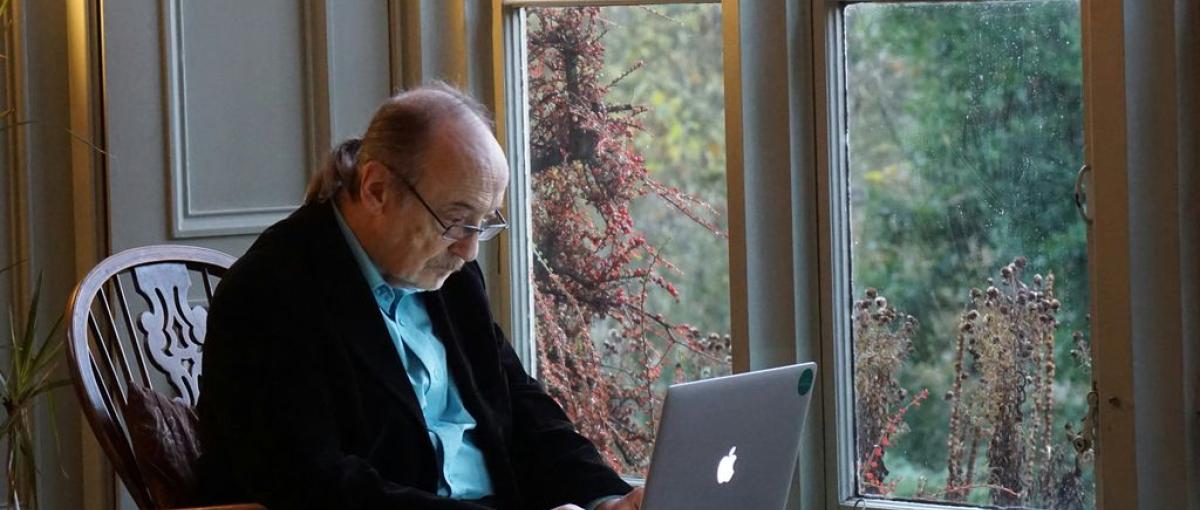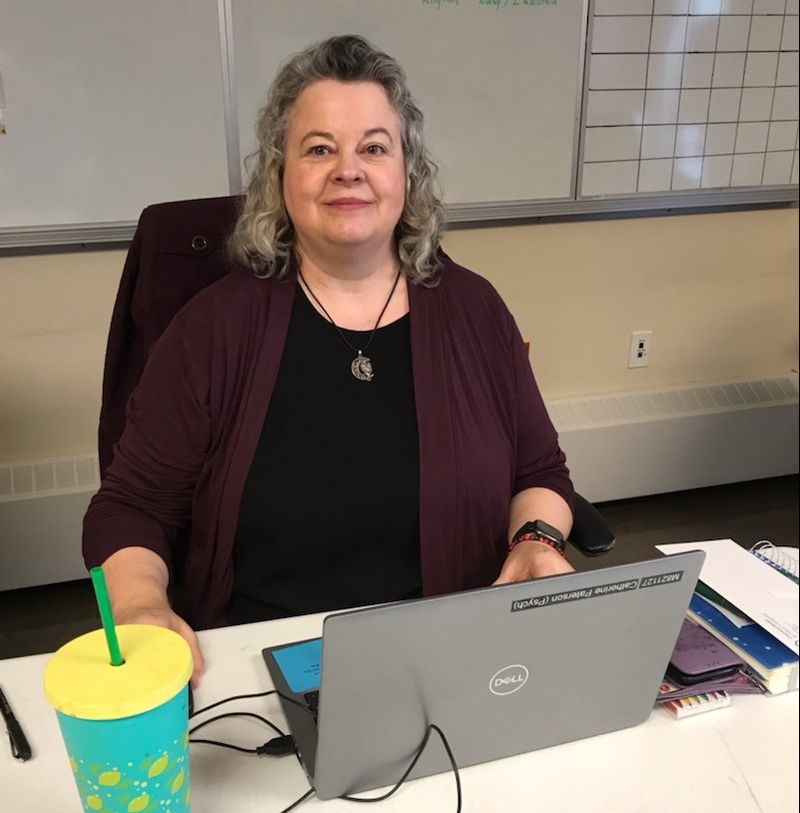Program for stroke patients provides mental health support, treating the whole person

May 2, 2024
By Lisa Brunelle, freelance writer
After Ed Marshall had a stroke last year, he experienced a lot of pain that led to feeling anxious and depressed. Thanks to the early supported discharge program at St. Mary’s Hospital, a Covenant Health facility in Camrose, he received the help he needed at home and through Zoom conferencing.
“The program helped me with a lot of things, including psychology,” says Ed. “I had some bad days because the pain was so bad. There were times I wished I could have died.”
The early supported discharge program provides a vital service to people recovering from a mild to moderate stroke once they return home from the hospital, helping them restore functioning.
Recognizing that clients are more than just their bodies, the interdisciplinary team includes a psychologist for clients who would benefit from mental health support as they transition to being at home.
“Our brain is like a set of train tracks, which before a stroke the track connecting to the brain is a straight path,” says Ashley Thomas, social worker.
“After a stroke, when the brain is healing, the path is kind of scrambled, and you’re trying to reconnect to your original train track. Part of this can be mood, which can come from the stroke itself, or mood is affected by deficits that have occurred from the stroke or even the trauma of the stroke, and that’s where psychological support can have a positive impact.”
Cat Paterson is the psychologist on the team. The team members meet every Tuesday to discuss their current clients — how they’re doing and what services they need.

Cat Paterson, psychologist
Cat says her colleagues may suggest she meet with a client for many reasons. They may bring her in at the beginning of their support if they know the client is depressed or anxious or later in the process. It depends on where the stroke was and how the client is doing.
“The mind and body obviously go together. If a person is experiencing a lot of anxiety, depression or anger, it’s going to show up in their body. They’re going to experience stress, and stress is a killer. People who’ve had a stroke don’t want to be at risk of having another one.”
Cat says some people experience a classic kind of grief following a stroke.
“They’ve had a loss, usually a loss of function. We look at positive things the stroke may give the person. We also celebrate little victories. Often, I teach stress management techniques. Some people believe that since they’re now in a program, they’re going to get better right away. They may or may not. For those who have unrealistic expectations, it may set them up for a psychological crash when reality doesn’t match. I try to help ease them into the reality of their situation.”
Cat met with Ed for scheduled visits and would make time to work with him when he was having a bad day.
“Cat is easy to talk to,” says Ed. “Without her and my wife, I probably wouldn’t be here.”
The team always focuses on the client’s goals, says Cat. “I tailor what I do to the person. Not everyone is comfortable talking about their feelings. I ask them what would make them feel better. Maybe it’s going for a walk, making something or taking a bath or shower. I try to help them find it and build it into their lives.”
In addition to supporting clients, Cat supports the team by offering insights in team meetings and when they are struggling with a difficult client or situation.
She hopes psychology continues to be part of the early supported discharge program.
“I hope it grows in rural health overall,” says Cat. “There are many clients who we wish could get mental health support after the program. Unfortunately for many, there is nowhere we can send them.”
Ed appreciates the support he received from Cat and the interdisciplinary team.
“I’m grateful to the program because, without all of them, I wouldn’t be doing as well as I am now,” says Ed. “I’m in a wheelchair now but can walk with a cane, and my arm is getting better. And Cat helped me when I was struggling mentally.”